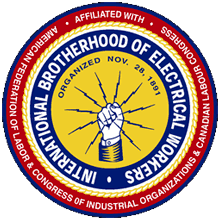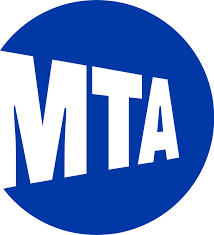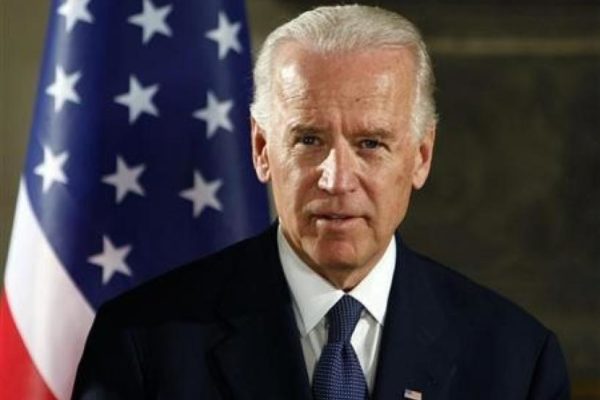Compiled by Steven Wishnia and Neal Tepel
California Judge Voids Teacher Tenure
A California judge ruled June 10 that the state’s teacher tenure laws violated students’ civil right to an education by letting ineffective teachers keep their jobs. Judge Rolf M. Treu of Los Angeles Superior Court also criticized protecting teachers with seniority from layoffs, and wrote that the laws involved “disproportionately affect poor and/or minority students.” Silicon Valley tycoon David Welch spent several million dollars to launch the case, Vergara v. California, and Education Secretary Arne Duncan celebrated the ruling. California teachers unions will appeal. “We believe the judge fell victim to the anti-union, anti-teacher rhetoric and one of America’s finest corporate law firms that set out to scapegoat teachers for the real problems that exist in public education,” said Joshua Pechthalt, president of the California Federation of Teachers.”
11 NJ Unions Sue Christie on Pensions
Two groups comprising 11 New Jersey public employees’ unions filed lawsuits June 9 charging that Gov. Chris Christie’s pension plan unconstitutionally breaks their contracts. State employees agreed to pay more for their retirement benefits in 2011 in exchange for the state putting more money into its underfinanced pension fund—but the governor now wants to cut those contributions by more than $2.4 billion, almost two-thirds of the amount earmarked for the fund for the next two years. The 11 unions include teachers, police, firefighters, and the state AFL-CIO. A hearing on both suits will be held June 25 in state Superior Court in Trenton.
New UAW Head Williams Vows ‘No More Concessions’
Newly elected United Auto Workers President Dennis Williams on June 5 said the union had made concessions to help the Big Three automakers during the recession, but now the companies shouldn’t “ask for ridiculous things.” “No more concessions. We are tired of it. Enough is enough,” Williams shouted while speaking at the union’s convention in Detroit. Veteran UAW members at General Motors, Ford, and Chrysler haven’t gotten a raise in almost ten years, and the union has also agreed to a two-tiered system in which newly hired workers are paid substantially less.
Illinois Gov. Signs Bill to Cut Chicago Pensions
Illinois Gov. Pat Quinn signed legislation June 9 that would cut pension benefits and increase contributions for about 57,000 Chicago municipal workers. The city has failed to make adequate payments into its pension funds for years, so they now have a shortfall of more than $20 billion. A property-tax increase was removed from the bill, which was backed by Chicago Mayor Rahm Emanuel. A coalition of Chicago unions, We Are One Chicago, said it would sue to stop the cuts.
Seattle’s $15 Minimum Has Several Loopholes
Seattle’s landmark $15-an-hour minimum wage, approved unanimously by the City Council June 3, has several large loopholes. Employers may be allowed to pay workers under 18 only 85% of the minimum, and they can also pay trainees, apprentices, and the disabled less if they get state approval. Workers at “large” employers, those with more than 500 workers and including franchises, will first see the $15 in January 2017 if they don’t get health benefits from their employer, and a year later if they do. Workers at smaller employers will get the $15 in 2019—unless they receive tips or health benefits, in which case they’ll have to wait until 2021.
32BJ Protests Boston Subway Cleaning Cuts
Workers, officials of SEIU 32BJ, and state legislators on June 5 criticized the MassachusettsBay Transportation Authority’s plans to cut 30% of its cleaning staff. The MBTA has awarded contracts to a cleaning service that authorize laying off 90 of its 300 janitorial workers Sept. 1. “We’re very concerned about the quality-of-life effect, the public-safety effect and obviously the burden this would place on displaced workers,” said state Sen. Anthony Petruccelli (D-East Boston). “You can imagine what we have to clean up,” janitor Jose Vasquez said through a translator, describing how he had to clean coffee spilled onto platforms, blood on the floor, and spit on the walls.
Pot-Chocolate Workers Ratify First UFCW Contract
Workers at Bhang Chocolate, a cannabis-chocolate company in Oakland, California, voted overwhelmingly June 5 to ratify their first contract as members of United Food and Commercial Workers Local 5. The contract includes wage increases, employer contributions to health insurance, and paid sick leave and vacation. The UFCW and California’s Local 5 are the main union for workers in cannabis and hemp businesses such as medical dispensaries, bakeries, hydroponics stores, and growing facilities in the states where its medical or recreational use has been legalized.
Letter Carriers Push to Preserve Door Delivery
The National Association of Letter Carriers is mobilizing to fight U.S. Postal Service plans to deliver mail to “cluster boxes” instead of directly to people’s doors. Postmaster General Patrick Donahoe, President Barack Obama, and House and Senate committees have proposed legislation to allow this service cut, which the union estimates would eliminate 80,000 mail carrier jobs. The Letter Carriers contend that mail delivered directly to people’s homes is less likely to be lost or stolen, and old people don’t have to walk far in bad weather to get theirs.
Pennsylvania Unions Protest Dues-Deduction Bill
Republicans in Pennsylvania’s legislature have introduced a so-called “paycheck protection” bill that would prohibit public-employee unions from collecting dues by having them automatically deducted from state paychecks. The bill is backed by anti-union groups such as Americans for Prosperity and the Harrisburg-based Commonwealth Foundation, who claim that because it costs the state money to process the deductions, unions are thus using public funds for political activity. Nonsense, responded AFSCME District Council 13, the state AFL-CIO, and the Pennsylvania State Education Association, who said that their contributions to political campaigns are funded by voluntary contributions by members, not from dues. State Treasurer Rob McCord wrote in a letter to Democratic lawmakers June 4 that processing the deductions costs Pennsylvania less than $100 a year.
Taxi Drivers Seek National Union
With their incomes decimated by leasing fees, gas prices, and app-based car services like Uber, taxi drivers are making efforts to form a national union. The New York City Taxi Workers Alliance, with 17,000 members, is helping a campaign to unionize drivers in Chicago, and is linking up with drivers’ unions in Philadelphia, Miami, Houston, northern Maryland, and Austin, Texas. A University of Illinois study done in 2010 found that Chicago cabbies worked more than 70 hours a week on average and earned $4.81 an hour after paying for gas, leasing the cab, and other costs. But drivers are usually barred from collective action because they’re classified as independent contractors, and the presence of Uber and other “ride-sharing” companies could undercut a strike.



